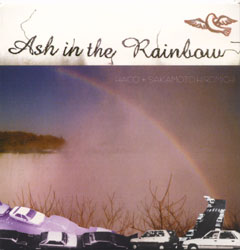
Out of Stock
Quantity in Basket: None
Log In to use our Wish List
Shipping Weight: 6.00 units
Sample The Album:
Haco-vocals, synthesizer, sampler
Sakamoto Hiromichi-cello, saw, electronic drums, effects, musical box, horn, recorder
Era Mari-vibraphone, percussion, bells
Click an artist name above to see in-stock items for that artist.
UPC: 752725019125
Label: Recommended Records
Catalog ID: ReR Haco3
Squidco Product Code: 1793
Format: CD
Condition: New
Released: 2002
Country: Great Britain
Packaging: Jewel Tray
Recorded at Mescalina and Big Apple in Kobe, JP from 2001-2002; at Hiromichi Sakamoto's home in Yokohama, JP from 1997-2002; and at Toi Studio in Tokyo, JP from 1997-1999 by Haco, Omata Yoshihisa, and Sakamoto Hiromichi.
Artist Biographies
• Show Bio for Haco "Vocalist/lyricist-composer/multi-instrumentalist/sound-artist. At her studio, Mescalina, in Kobe, Japan, she has created numerous recordings both as producer and engineer. As a musician and sound-artist, Haco has also given performances and created live installations throughout Japan and the world. With her unique sensibility, Haco has developed her own genre of art based on principles of post-punk, electroacoustics, the avant-garde, improvisation, post-rock, environmental sound, and technology. Haco also frequently lectures and gives workshops on various sound-related topics. In 2005, her CD Stereo Bugscope 00 was awarded a prize in the digital music category at Prix Ars Electronica in Austria. In the 80s, Haco formally studied acoustics, electronic music, and recording technology. She earned a large following for her recorded work and performances as the composer/lyricist/vocalist of After Dinner (1981-1991), one of the first Japanese indie bands to tour abroad. In 1990, Haco appeared in the film Step Across the Border, a documentary on Fred Frith, which was selected as one of the top 100 films of all time by Cahiers du Cinema. One of Haco's songs, which she played on piano, was also included in the soundtrack CD. A DVD version of the film was released in 2003. In the 90s, Haco worked as a sound exhibition and installation curator at Xebec, an innovative hall and presentation space for computer music and sound art, which was profiled by the writer David Toop and others. In 1995, Haco released her first solo album. Around the same time, she began performing improvisations with compact samplers, self-produced electronic units, electric mandolin, percussion and toys along with voice. Her "howling pot" performances, which make creative use of feedback, have been compared to sound art. Since her first solo tour of Europe in 1996, her live performances have been hugely successful at the LMC Festival (London), Le Weekend (Scotland), Vooruit Geluid Festival (Belgium), Isole Che Parlano (Italy), and other events. In addition, she is involved with the guitar improvisation duo Mescaline Go-Go (Christopher Stephens), the odd-song unit Happiness Proof, and the all-female collaboration Hoahio (Yagi Michiyo: koto, Era Mari: percussion, and Sachiko M: sine wave). She has collaborated on recorded work or in performance with numerous musicians, including Ash in the Rainbow (Hiromichi Sakamoto), Yesterday's Heroes (Terre Thaemlitz), Kam-pas-nel-la (Kazuhisa Uchihashi, Samm Bennett, Zeena Parkins), Peter Hollinger, Pierre Bastien, Carl Stone, Seiichi Yamamoto, Otomo Yoshihide, Ikue Mori, Aki Onda, Martin Tétreault, Diane Labrosse, David Toop, Fred Frith, Chis Cutler, Yoshimi P-we (OOIOO, Boredams), Gurun Gurun, and Stefan Schneider. Her original style of vocalizing, experimental pop sound and improvisation surpasses conventional genres and national borders, and continues to attract new listeners. In a sound-art context, Haco established the "sound collection and observation organization," View Masters, an environmental sound project which seeks to select, extract and define sounds from daily life. In 2002, she began to curate and produce a four-year series of View Masters lectures, concerts and workshops at Aka Renga Soko (Red Brick Warehouse) in the Osaka Port area. In the first installment, she premiered a performance of "Stereo Bugscope," which captured oscillating sounds emitted by the circuitry of an electronic device, and thus, established herself in a new genre of art. In 2003, she gave her first performance using the "Pencil Organ," an instrument created from a home electronics kit that uses test leads (+/-) to produce sound, at the Festival Beyond Innocence in Osaka. In 2007, she released a whispering vocal-based solo album with acoustic instruments and electronics called Riska. This was followed in 2011 by Forever and Ever (on Disk Union's Arcangelo label), a solo album centering on laptop electronica (including ambient sounds and glitch noises) and vocals. In 2015, her sixth solo album, Secret Garden was released on the Japanese label, Nuovo Immigrato. This internationally acclaimed album includes long-distance collaborations with Marcelo Radulovich (USA), Stuart O'Connor (UK), and Sigbjørn Apeland (Norway). ReR Megacorp offered this assessment: "Haco continues to plough her unique furrow. Small sounds, electronics, distant choirs and floating strands that coalesce into islands of harmony and song before they break apart again. If there's a secret Japanese underground, this is it. Handmade and always inventive, but light as gossamer." Since 2004, she has used voice and self-programmed electronics as an "organic method" in her performances, sometimes accompanied by video images shot and edited with Mariko Tajiri." ^ Hide Bio for Haco
4/2/2025
Have a better biography or biography source? Please Contact Us so that we can update this biography.
Track Listing:
Haco-vocals, synthesizer, sampler
Sakamoto Hiromichi-cello, saw, electronic drums, effects, musical box, horn, recorder
Era Mari-vibraphone, percussion, bells
Before April-2006
Recommended Records
Japanese & Asian Improv/Rock
Song Based Music
Before April-2006
Search for other titles on the label:
Recommended Records.



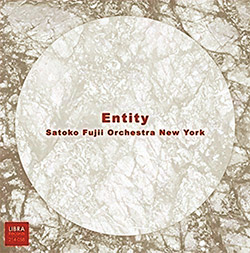
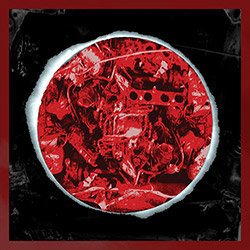
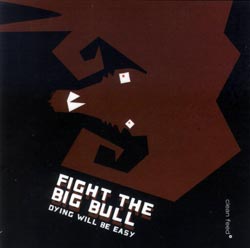
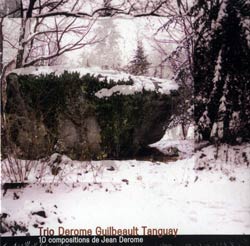
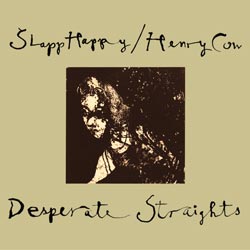


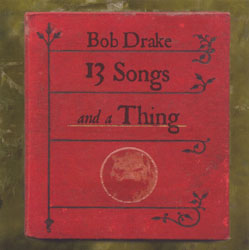
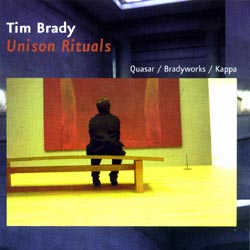
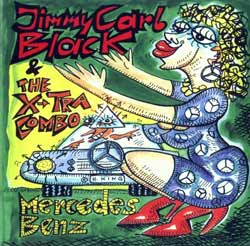
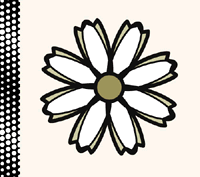
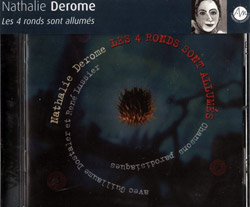
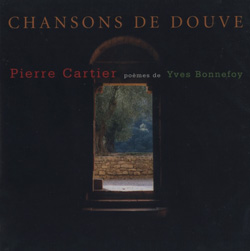
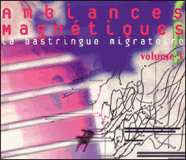

![Niblock, Phill / Anna Clementi / Thomas Stern: Zound Delta 2 [VINYL]](https://www.teuthida.com/productImages/misc4/34623.jpg)
![Yoko, Ono / The Great Learning Orchestra: Selected Recordings From Grapefruit [2 CDs]](https://www.teuthida.com/productImages/misc4/35841.jpg)

![Brotzmann, Peter / John Edwards / Steve Noble / Jason Adasiewicz: The Quartet [2 CDs]](https://www.teuthida.com/productImages/misc4/35975.jpg)
![Brotzmann, Peter / John Edwards / Steve Noble / Jason Adasiewicz: The Quartet [VINYL 2 LPs]](https://www.teuthida.com/productImages/misc4/35976.jpg)
![Thomas, Pat: The Solar Model of Ibn-Al Shatir [VINYL]](https://www.teuthida.com/productImages/misc4/36044.jpg)
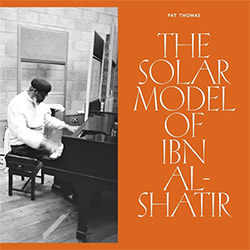



![Rodrigues, Ernesto / Nuno Torres / Guilherme Rodrigues: Whispers In The Moonlight - In Seven Movements [2CDs]](https://www.teuthida.com/productImages/misc4/35765.jpg)



![Cocks, Laura: FATHM [VINYL]](https://www.teuthida.com/productImages/misc4/36055.jpg)










![Ackerley / Prymek / Turner: All Hope With Sleeping Minds [CASSETTE]](https://www.teuthida.com/productImages/misc4/35950.jpg)
![Myers, David Lee : Tin Drop Tear [BOOK w/ DOWNLOAD]](https://www.teuthida.com/productImages/misc4/36030.jpg)




![Schindler, Udo / Sandy Ewen / Damon Smith: Munich Sound Studies Vols. 4, 5 & 6 [3 CDs]](https://www.teuthida.com/productImages/misc4/35966.jpg)
![Turbulence Orchestra & Sub-Units: Smear Out the Difficulties (Double Live) [2 CDs]](https://www.teuthida.com/productImages/misc4/36048.jpg)


![Perelman, Ivo / Tyshawn Sorey: Paralell Aesthetics [2 CDs]](https://www.teuthida.com/productImages/misc4/35871.jpg)


![Sjostrom, Harri: SoundScapes #4 Festival Berlin 2023 [3 CDs]](https://www.teuthida.com/productImages/misc4/35874.jpg)



![Glenn, Jordan: Flustered [CASSETTE]](https://www.teuthida.com/productImages/misc4/35948.jpg)










![Olencki, Weston : Pearls Ground Down To Powder [VINYL]](https://www.teuthida.com/productImages/misc4/35956.jpg)
![Myers, David Lee: Oculus [2CDs]](https://www.teuthida.com/productImages/misc4/35857.jpg)


![dustsceawung: dustsceawung [CASSETTE w/ Download]](https://www.teuthida.com/productImages/misc4/35753.jpg)




![Halls of the Machine: Atmospheres For Lovers And Sleepers [CASSETTE w/ DOWNLOAD]](https://www.teuthida.com/productImages/misc4/35806.jpg)



![AHC (Alexander Cooper): Lase [2 CDs]](https://www.teuthida.com/productImages/misc4/35754.jpg)



![Fagaschinski, Kai / Yan Jun : Graveyard Processions [VINYL w/ DOWNLOAD]](https://www.teuthida.com/productImages/misc4/35474.jpg)









![Zorn, John / JACK Quartet: The Complete String Quartets [2 CDs]](https://www.teuthida.com/productImages/misc4/35609.jpg)

![Lonsdale, Eden: Dawnings [2 CDs]](https://www.teuthida.com/productImages/misc4/35480.jpg)







![Sanna, Claudio: Compositori Sardi Contemporanei II [2 CDs]](https://www.teuthida.com/productImages/misc4/35317.jpg)







![Zurria, Manuel: Fame di Vento [3 CDs]](https://www.teuthida.com/productImages/misc4/35167.jpg)


![Electric Bird Noise / Derek Roddy: 8-10-22 [CD EP]](https://www.teuthida.com/productImages/misc4/35970.jpg)








![Elephant9 : Mythical River [VINYL]](https://www.teuthida.com/productImages/misc4/34624.jpg)



![Elephant9 with Terje Rypdal: Catching Fire [VINYL 2 LPs]](https://www.teuthida.com/productImages/misc4/35355.jpg)
![Deerlady (Obomsawin, Mali / Magdalena Abrego): Greatest Hits [VINYL]](https://www.teuthida.com/productImages/misc4/34876.jpg)







![Surplus 1980: Illusion of Consistency [CD]](https://www.teuthida.com/productImages/misc4/35069.jpg)
![Staiano, Moe: Away Towards the Light [VINYL + DOWNLOAD]](https://www.teuthida.com/productImages/misc4/35037.jpg)



![Caveira (Gomes / Sousa / Abras / Ferrandini): Ficar Vivo [VINYL]](https://www.teuthida.com/productImages/misc4/34643.jpg)
![Coley, Byron: Dating Tips for Touring Bands [VINYL]](https://www.teuthida.com/productImages/misc4/17906.jpg)

![Lost Kisses: My Life is Sad & Funny [DVD]](https://www.teuthida.com/productImages/misc4/lostKissesDVD.jpg)